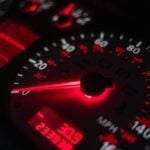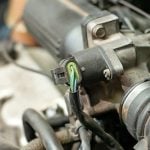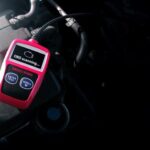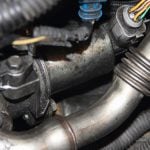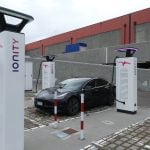Lately, I have been experiencing a lack of power while driving my car. The car was consuming a large quantity of fuel, and I could even sense the odor of fuel often. I thought my car had some severe issues, but fortunately, I decided to check the issue with an OBD-II scanner. The scan tool indicated that the powertrain control module (PCM) logged the P0172 code.
My next concern was whether engine code P0172 would cause significant trouble to my car, and I started researching that. Fortunately, it’s not a serious code unless you fail to diagnose and repair it. My article will explain this code, its severity, causes, symptoms, and how to fix it!
What Does Code P0172 Mean?
A P0172 code indicates that the fuel system is excessively rich or inadequate air in the engine’s air-fuel mixture. The code appears when there is too much fuel in the exhaust gas flowing from the combustion chamber. The code could imply the following.
- A vacuum leakage near the engine
- The fuel system is operating weak
- There’s dust, dirt, or oil residue on the airflow sensor and the sensing wire
How Serious Is the P0172 Code?
The code can cause black smog and may lead to your car failing the vehicle inspection. Continuing driving with this code can damage your car’s catalytic converter, pistons, and spark plugs and also lead to internal engine issues.
What Causes a P0172 Code?
The following are some reasons why the P0172 engine code appears in your car. Knowing it in advance will help you prevent the code from showing up.
- Engine oil is dirty
- Blocked air filter
- Defective pressure regulator
- Leakage in fuel injectors
- Dirty mass air flow sensor
- Vacuum leaks
- Faulty absorber valve
- Defective spark plugs
- The fuel pump is creating excess pressure
- Severe fuel pressure because of the restriction along the fuel return line
- Issues with the throttle position sensor
What Are the Symptoms of Code P0172?
The symptoms may vary based on your car’s make and model and the issue’s severity. However, you can observe some common symptoms when this error code appears in your car.
- The check engine light illuminates
- Fuel economy decreases
- Lack of engine power
- Smoke or fuel odor from the exhaust
- Engine misfires
- Rough idle
- The engine hesitates while accelerating
- Dirt buildup on spark plug diodes
Practical Tips to Fix the Code in a Pinch
- Make sure your fuel pressure is within the proper range. The excess pressure from a pinched return line or improper pressure can cause more fuel to enter the combustion chamber than the PCM anticipates.
- MAF contamination could distort measurements of air entering the combustion compartment. As a result, fuel injection calculations are wrong. Cleaning your MAF can help you overcome a P0172 code more easily than you think. Replace the MAF, install a new air filter, and make sure the air box is correctly shut for a longer-lasting solution.
- Ensure that your IAT (intake air temperature) and ECT values are correct. It’s an important resolution step because the PCM can miss some stuck sensors. Make that the IAT and ECT readings are within acceptable limits.
- Examine the fuel lines for any pinches, leaks, or fractures.
A P0172 may also happen due to a misfire. In such cases, you may also inspect some of the other important details.
• Exhaust – look for probable leaks in your exhaust, especially between the oxygen sensor and the cylinder head. Exhaust pressure pulses can create a partial vacuum, allowing air to pass through. You may measure the atmospheric oxygen levels by entering the combustion chamber before the H02S.
• A cylinder misfire could result in unburned fuel entering your exhaust system. Before identifying a rich situation, a cylinder misfire should be checked and repaired. Pay special attention to DTCs linked to the ignition system or variable valve timing (VVT) to resolve the P0172 code effortlessly.
• Fuel pressure decline – while the engine is running, record the fuel pressure and then turn it off. The fuel pressure may decrease slightly. It should, however, remain consistent for at least 10-15 minutes. If it continues to decline, your fuel injector may be leaking, causing a rich condition as well as the possibility of misfiring.
Will the P0172 Code Clear On Its Own?
The P0172 error code, like any other issue, will not disappear on its own as the problem ends. As a result, you must utilize an OBD-II scanner and link it to your vehicle. Rescan the vehicle after it’s linked to the scanner. P0172 should appear as an inactive error notice. Clear this error with the utility to overcome the difficulty. Try scanning the car again to check that all the codes are gone.
Is Driving with a PO172 Code Safe?
You will be unable to drive your vehicle for an extended period of time if this error code is active. While going for shorter distances may be possible, avoiding and delaying repairs can compound the damage and cause the decay to reach one of the most expensive sections of a car, the catalytic converter.
Ignoring the P0172 code can cause tremendous issues, even in the short term. Replacing a catalytic converter can cost up to $3,000, or even more in the case of expensive vehicles. As a result, you should take your car to a competent repair shop as soon as you see any of the indicators of this code.
How Much Does It Cost to Fix the P0172 Code?
The cost of fixing engine code P0172 varies depending on the issue. Expect to pay around these costs depending on the issue.
- Replacing spark plugs – $6-$30 for every spark plug
- Cleaning/replacing mass air flow sensor – $100/$300
- Replacing fuel pressure regulator – $200-$400
- New oxygen sensor or air fuel sensor – $200-$300
- New engine coolant temperature sensor – $150-$200
Remember that these are merely the estimated rates and not the actual rates. You won’t know how much money will leave your wallet until you drive into a mechanic’s shop.
What Is the Most Common Cause of P0172?
The most common cause for this engine error code is a bad mass air flow sensor. This is because the sensor can send incorrect information about the air coming into the car’s engine.
All Your Questions Answered
Yes, a bad air filter can cause the code to appear. The code means that one or many banks have excess fuel but not much air.
Yes, a defective O2 sensor can cause code P0172 to appear in your car. When this code appears, it means there is an excess of fuel in the exhaust stream or insufficient air.
Yes, defective spark plugs are another major cause for code P0172 to appear. Their main role is to cause a response between the air and the fuel; if there is no spark, the PCM will detect excess fuel. When a spark plug fails, the code appears.
A vacuum leak can cause the code to appear as a defective EVAP purge solenoid can draw gas vapors into the intake after refueling. This can cause the P0172/P0175 code to appear.
P0172 code Chevy denotes “Fuel System Too Rich (Bank 1)”. It implies that the engine’s air-fuel combination contains too much fuel or insufficient oxygen.
Code P0172 on a Hyundai car means the engine’s Bank 1 contains a rich fuel mixture. The PCM logs this code when it senses excess fuel in the exhaust gas leaving the combustion chamber.
P0172 engine code on a Nissan car means that the fuel mixture in the engine’s Bank 1 is excessively rich. It indicates that there’s excess fuel getting delivered to Bank 1’s combustion chambers or insufficient air. The PCM logs this code when it notices excess gas in the exhaust gas exiting the combustion chamber.

Sara Sam may not look like your typical car and finance expert, but don’t let that fool you. With over four years of experience in the industry, she knows all the ins and outs of cars, car insurance, and refinancing. You can trust Sara to help you navigate the often-confusing world of automobiles and financing.


